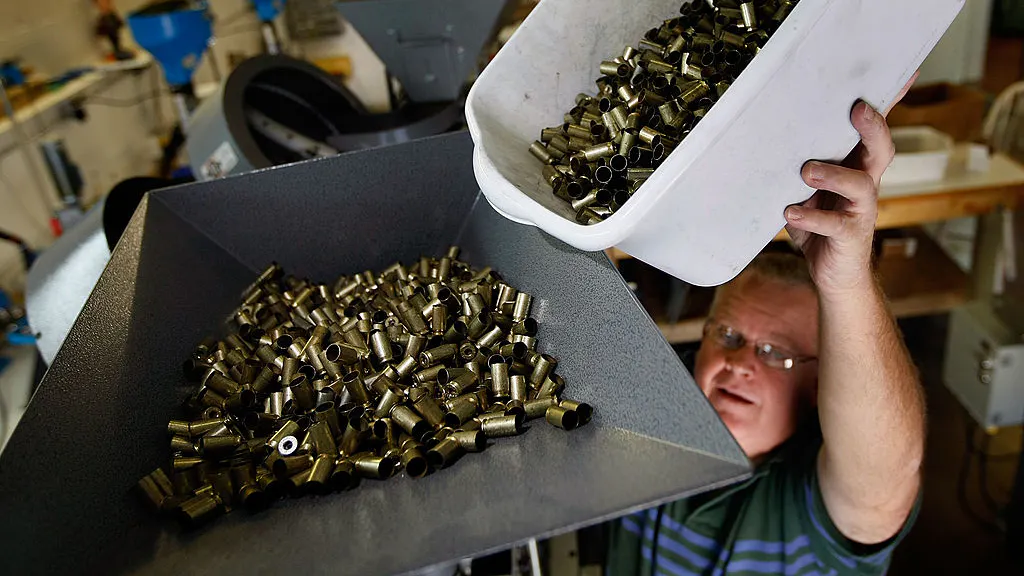Leaders in the firearm industry see no end in sight for the nationwide ammunition shortage.
Two executives — Mark Smith, CEO of firearms manufacturer Smith & Wesson, and Rob Southwick, president of outdoor recreation statistics firm Southwick Associates — told Fox Business that demand for firearms remains high.
“It’s widely known the ammunition shortages continue,” explained Smith. “There is still a lot of interest in firearms.”
“At some point, demand will certainly soften,” added Southwick. “However, frenzied purchasing and empty shelves often fuels further increases in demand. We do not see demand softening in the near future.”
Data show that Americans are purchasing firearms at record levels.
According to a National Shooting Sports Foundation report released in January:
Twenty-one million background checks were conducted for the sale of a firearm over the past 12 months. That topped 2019’s totals of 13.2 million by 60 percent. It also shattered the previous record from 2016, when 15.7 million background checks were conducted for the sale of firearms. This year’s 21 million total surpassed 2016 by 5.3 million, or 34 percent… NSSF estimates that 8.4 million people bought a firearm for the first time in 2020. That’s 40 percent of all purchases.
The group noted that the firearms market is becoming “increasingly diverse.”
“Forty percent of 2020’s buyers were women and the biggest increase of any demographic category was among African Americans, who bought guns at a rate 58 percent greater than in 2019.”
The ammunition and firearm shortages occur amid a recovering consumer economy in the United States, a crime wave that began after the death of George Floyd, and a series of promises from President Biden to more harshly restrict gun purchases.
For instance, a statement from the White House released in April reads:
President Biden is reiterating his call for Congress to pass legislation to reduce gun violence. Last month, a bipartisan coalition in the House passed two bills to close loopholes in the gun background check system. Congress should close those loopholes and go further, including by closing “boyfriend” and stalking loopholes that currently allow people found by the courts to be abusers to possess firearms, banning assault weapons and high capacity magazines, repealing gun manufacturers’ immunity from liability, and investing in evidence-based community violence interventions. Congress should also pass an appropriate national “red flag” law, as well as legislation incentivizing states to pass “red flag” laws of their own.
President Biden also nominated David Chipman — a gun control lobbyist who spent nearly three decades working for the Bureau of Alcohol, Tobacco, and Firearms — to lead the agency.
During his confirmation hearing, Chipman seemed to define an “assault weapon” as “a semi-automatic rifle capable of accepting a detachable magazine with a round greater than a .22 caliber.” As Sen. Tom Cotton (R-AK) replied: “I’m amazed that might be the definition of an ‘assault weapon.’ That would basically cover every single modern sporting rifle in America today.”

.png)
.png)

